
Breadcrumb
-
Port Klang Initial Risk Assessment
The GEF/UNDP/IMO Regional Programme on Building Partnerships in Environmental Management for the Seas of East Asia (PEMSEA) identified Port Klang, which includes Klang and Kuala Langat districts as one of the six national demonstration sites in the region to develop and implement integrated coastal management (ICM) as a strategic environmental management framework in partnership with the national government and local stakeholders in the public and private sectors. This pioneering effort is in line with Agenda 21 of the Selangor State Government. The Memorandum of Agreement between the State Government of Selangor and PEMSEA for the implementation of this project was signed on 19 July 2001. The Selangor Waters Management Authority (Lembaga Urus Air Selangor or LUAS) has been designated by the State Government of Selangor to be the Project Management Office (PMO) for the ICM Project. This report presents the findings and outcome of the initial risk assessment (IRA) of Port Klang, Malaysia, which is one of the component activities of the Port Klang ICM Project. The assessment was undertaken by an inter-agency, multi-disciplinary Technical Working Group composed of experts and technical personnel from various government agencies and institutions involved in the Port Klang ICM Project. The IRA of Port Klang was started during the Training Course on Environmental Risk Assessment, held from 23–28 July 2001 at Burapha University in Chonburi, Thailand, and subsequently completed at the project site. Comments from various institutions were used to refine the initial drafts.
-
An Overview of Public and Private Sector Capacities for Environmental Infrastructure in the Philippines
This study focuses on environmental infrastructure improvements for water, sewage, sanitation, industrial and agricultural waste management. Specifically, it aims to do the following: a) identify the key stakeholders in environmental infrastructure (EI) project development and financing; b) determine the relevant environmental infrastructure policies, strategies, priorities, programs/projects of key stakeholders; c) assess the existing capacities to develop and finance EI projects; and d) surface major barriers/constraints to the development, implementation and financing of EI projects.
-
An Overview of Public and Private Sector Capacities for Environmental Infrastructure in Five East Asian Countries
The GEF/UNDP/IMO Regional Programme on Partnerships in Environmental Management for the Seas of East Asia (PEMSEA) commissioned the Global Environment & Technology Foundation to conduct a desktop review of current constraints regarding the provision of water and sewerage/sanitation services in East Asia, covering five countries namely: Cambodia, China, Indonesia, Philippines, and Vietnam. The review focused on four key components: 1) supply and demand situation in the water and sewerage/sanitation services; 2) institutional arrangements and structures; 3) funding sources and constraints; and 4) private sector participation.
-
Bohai Sea Environmental Risk Assessment
The Bohai Sea Environmental Risk Assessment provides information on the rationale of the environmental risk assessment, the methodology developed and applied in the Bohai Sea initiative, the results of the work and recommendations for improving the risk assessment as a management tool in Bohai Sea. The Bohai Sea risk assessment was conducted in three stages. First, an initial risk assessment (IRA) was implemented as a screening mechanism for identifying priority environmental concerns on a sea-wide basis and the related data gaps and uncertainties. Second, the targets of interest were re-focused to human health, habitats and commercial and non-commercial marine species. In addition, the refined risk assessment was conducted at two levels. Risks to Bohai Sea as a whole were considered, in which the sea was treated as a single compartment and a single average exposure concentration was estimated. For selected contaminants, risks to the four parts of the Bohai Sea (Liaodong Bay, Bohai Bay, Laizhou Bay and the central region) were estimated, by calculating local exposure concentrations in the vicinity of specific human activities or natural resources. And lastly, the final report verified the data for each step of the assessment and further tidied up the calculation and identification of the environmental concerns. Sources of uncertainties in the risk assessment for some contaminants were also identified.
-
Coastal Strategy of Nampho City, Democratic People’s Republic of Korea
The Coastal Strategy of Nampho City aims to develop and utilize land and coastal resources rationally as required by the Juche Idea and build the area into an enchanted socialist land better to live in by the people adhering to sustainable development practices based on the principle of conserving the environment. It also aims to manage and develop the coast in an integrated and comprehensive way, and at the same time protect the environment. It prescribes the development prospects in accordance with the principles and vision of integrated coastal management (ICM), by providing cooperative directions for the development and management of the coast to the stakeholders.
-
Southeastern Coast of Bali Initial Risk Assessment
Environmental risk assessment estimates the likelihood of harm being done to identified targets as a result of factors emanating from human activity, but which reach the targets through the environment. This combines knowledge about the factors that bring about hazards, their levels in the environment, and the pathways to the targets. This initial risk assessment (IRA) of the Southeastern Coast of Bali was conducted as a preliminary step to the refined risk assessment. It provides a glimpse of environmental conditions in the area using available secondary data. It serves as a screening mechanism to identify priority environmental concerns in the area, identify data gaps and uncertainties and recommend areas for immediate management intervention or further assessment. It identifies contaminants that present acceptable risks and, hence, may not need further assessment, and highlights contaminants that present risks to the environment and/or to human health. It also identifies resources and habitats that are at risk and recognizes significant causes of risks. The results of the IRA will be used to formulate an action plan for a more comprehensive risk assessment that is focused on the identified priority areas of concern. Evaluating the results of the IRA will also facilitate improvement and refinement of the methods used.
-
Danang Initial Risk Assessment
This publication presents the results of the IRA, which was completed based on available scientific information on the marine and coastal resources and environment of Danang City. Priority environmental concerns for management actions were identified, including data gaps and uncertainties that need to be addressed through comprehensive environmental monitoring program. Recommendations were also drawn up focusing on the best management options that would address the identified risks. In this study, environmental risk assessment was carried out for Danang City's coastal zone which covers six districts: Hai Chau, Thanh Khe, Hoa Vang, Ngu Hanh Son, Lien Chieu and Son Tra, which include watersheds draining to Danang coastal zone from surface water areas such as lakes and rivers — headwaters of rivers from the mountains and hilly areas in Danang City. The contiguous boundaries of the coastal zone including Quang Nam province and Hue City were also assessed in this report.
-
Manila Bay: Refined Risk Assessment
This report presents the findings and outcome of the refined risk assessment of Manila Bay which was undertaken by an inter-agency, multidisciplinary Technical Working Group (TWG) created by PEMSEA and DENR-MBEMP. The report was based to a large extent on the document, "Manila Bay: Initial Risk Assessment" which was published by PEMSEA and DENR in April 2001. The refined risk assessment aims to review the initial risk assessment of Manila Bay in order to determine if there are other new additional data which could be included and to examine the effect of such new or additional data on the conclusions and recommendations made during the initial risk assessment; identify sources of and activities that contribute to pollution in the bay; evaluate the impacts of pollutants in Manila Bay on human and ecological targets and identify those pollutants that should be given priority in risk management or remediation programs; recommend measures to reduce or eliminate identified risks of significance to the bay; identify data gaps in the refined risk assessment of Manila Bay that need to be addressed and uncertainties that need to be verified through monitoring and research/studies that generate primary data; and strengthen local capability of and collaboration among agencies and institutions that can play significant roles in the long-term management of Manila Bay.
-
Sustainable Development Strategy for the Seas of East Asia : Regional Implementation of the World Summit on Sustainable Development Requirements for the Coasts and Oceans [Reprint]
The Sustainable Development Strategy for the Seas of East Asia (SDS-SEA) provides a regional implementing framework and strategies for achieving the goals of key international agreements and action plans, including the UN Millennium Development Goals, the World Summit on Summit on Sustainable Development Plan of Implementation, Chapter 17 of Agenda 21 and other international instruments related to coasts, islands and oceans.
The SDS-SEA was developed after three years of extensive consultations with the 12 participating governments and 16 stakeholder partners, and embodies a shared vision among stakeholders towards achieving the sustainable use of coastal and marine natural resources, protection of the ecosystems, protection of life and property of the coastal population and sustaining the benefits provided by marine ecosystems. Action programs are developed under six major strategies: Sustain, Preserve, Protect, Develop, Implement and Communicate.
On 12 December 2003, at the Ministerial Forum during the East Asian Seas Congress 2003, concerned ministers of PEMSEA participating countries, as well as representatives of other stakeholder entities, adopted the Putrajaya Declaration of Regional Cooperation for the Sustainable Development of the Seas of East Asia. By adopting the SDS-SEA, the Putrajaya Declaration conveys a regional policy commitment to sustainable development of the seas of East Asia and to forge stakeholder partnership arrangments in addressing areas of concern.
This reprint includes the:
- Putrajaya Declaration of Regional Cooperation for the Sustainable Development of the Seas of East Asia
- Haikou Partnership Agreement on the Implementation of the Sustainable Development Strategy for the Seas of East Asia
- Manila Declaration on Strengthening the Implementation of Integrated Coastal Management for Sustainable Development and Climate Change Adaptation in the Seas of East Asia Region
Print version is available for FREE. Pay only for the shipping cost.


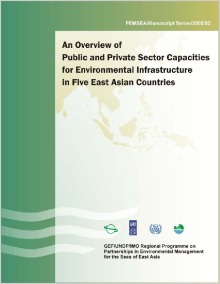
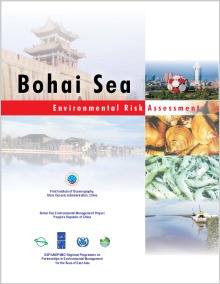
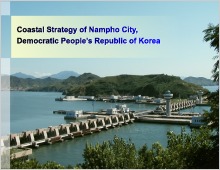
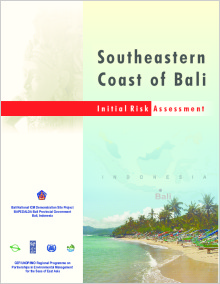
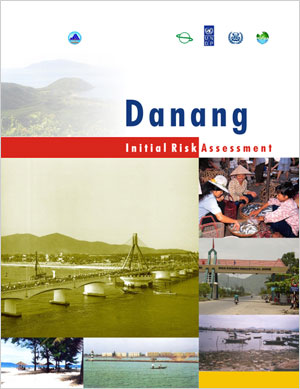
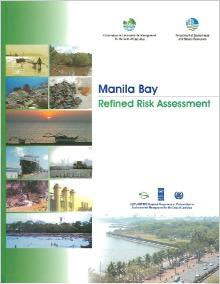
![Sustainable Development Strategy for the Seas of East Asia : Regional Implementation of the World Summit on Sustainable Development Requirements for the Coasts and Oceans [Reprint]](/sites/default/files/2023-12/sustainable-development-strategy-seas-east-asia-sds-sea-reprint-2011_0.jpg)